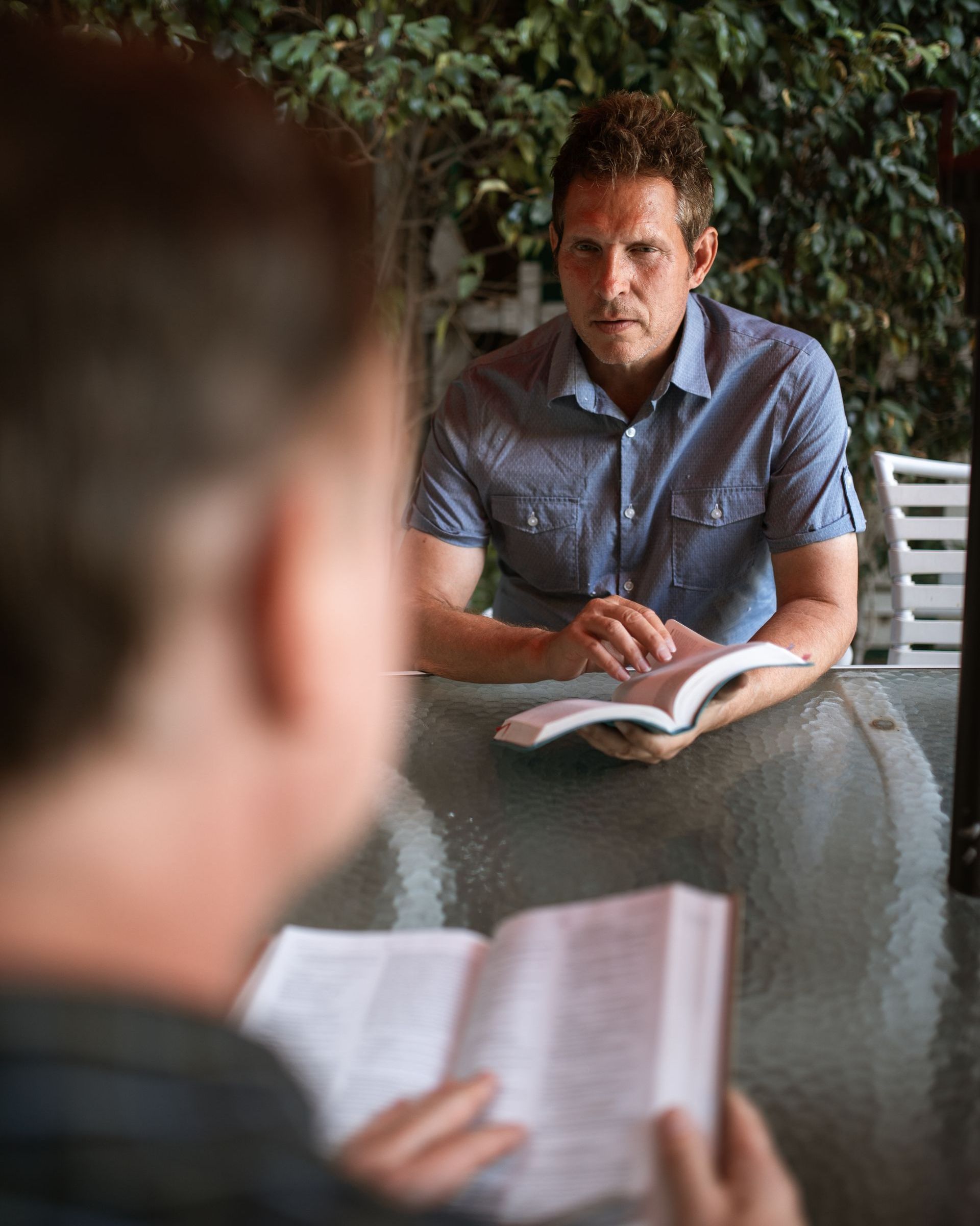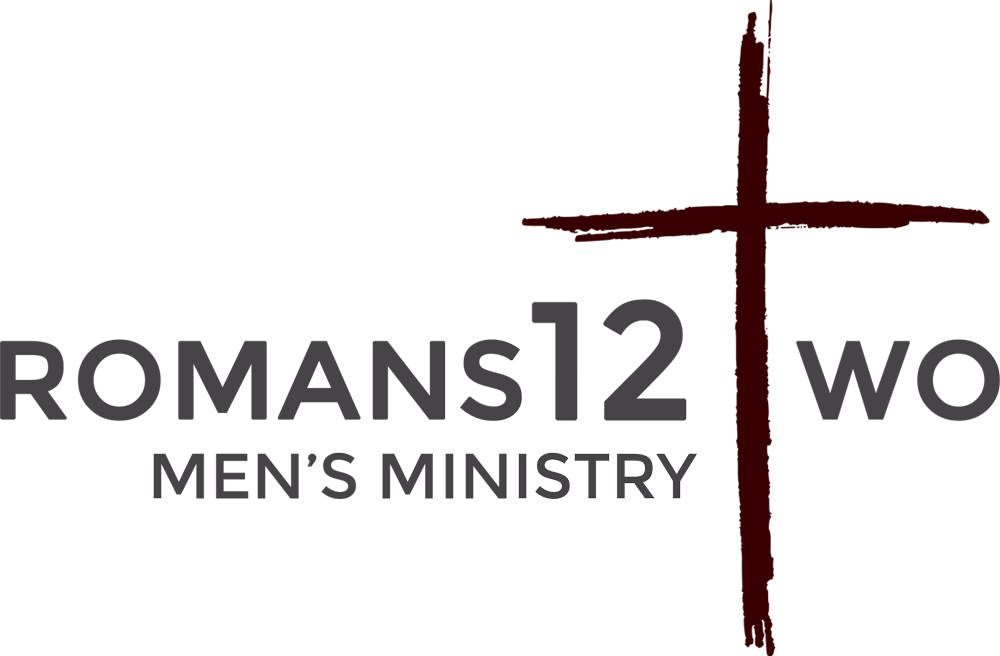The Transformative Power of Forgiveness: Healing, Restoration, and Embracing a New Chapter

Forgiveness is a powerful act that holds the potential to bring healing, restoration, and liberation to our lives. It is a journey that requires courage, vulnerability, and a willingness to let go of past hurts. In this blog, we will delve into the transformative power of forgiveness, exploring its significance in our personal growth and well-being. We will also provide practical steps to embrace forgiveness, allowing us to embark on a path of healing and the possibility of creating a new chapter in our lives.
Understanding the Significance of Forgiveness:
Forgiveness goes beyond mere words or gestures. It is a deeply personal and internal process that frees us from the burden of resentment, anger, and pain. In this section, we will discuss the significance of forgiveness, exploring how it benefits our emotional, mental, and even physical well-being. We will uncover the transformative impact forgiveness can have on our lives and relationships. Forgiveness is a profound act that holds immense significance in our lives. It is far more than a superficial exchange of words or a simple gesture of reconciliation. Instead, forgiveness is a deeply personal and internal process that has the power to transform our emotional, mental, and even physical well-being.
At its core, forgiveness is an intentional choice to release ourselves from the heavy burden of resentment, anger, and pain. When we hold onto grudges or harbor feelings of bitterness, we carry a weight that hinders our ability to experience true joy and inner peace. However, forgiveness liberates us from this burden, allowing us to let go of negative emotions that can consume our thoughts and energy.
Emotionally, forgiveness provides a pathway to healing and restoration. It offers us the opportunity to confront our emotions, acknowledge our pain, and ultimately release the grip that past hurts have on us. By embracing forgiveness, we create space for emotional healing, allowing wounds to gradually mend and scars to fade. It is a powerful step towards reclaiming our emotional well-being and cultivating a sense of inner harmony.
Moreover, forgiveness has a profound impact on our mental well-being. When we choose forgiveness, we shift our perspective and free ourselves from the cycle of negative thoughts and rumination. It enables us to break free from the chains of the past and create a renewed mindset focused on growth, positivity, and resilience. By letting go of resentment and anger, we create room for more empowering thoughts, fostering a sense of clarity, optimism, and self-empowerment.
Beyond the emotional and mental realms, forgiveness can even influence our physical well-being. The burden of holding onto grudges and harboring resentment can take a toll on our physical health. Research has shown that chronic anger and stress associated with unforgiveness can contribute to various health issues, such as cardiovascular problems, weakened immune function, and increased risk of chronic conditions. By embracing forgiveness, we alleviate the physical strain that negative emotions can impose on our bodies, promoting overall well-being and vitality.
Additionally, forgiveness holds the power to transform our relationships. It allows us to break down barriers and rebuild trust, fostering deeper connections with others. Through forgiveness, we create an environment of empathy, understanding, and compassion, which paves the way for stronger and more meaningful relationships. It opens the door for reconciliation, healing fractured bonds, and cultivating a sense of unity and harmony within our interpersonal connections.
Understanding the significance of forgiveness is crucial in our journey towards personal growth and well-being. It extends beyond superficial acts and reaches the depths of our emotional, mental, and physical realms. By embracing forgiveness, we free ourselves from the burden of negative emotions, promote healing and restoration, and cultivate a more positive and fulfilling life. Let us embark on this transformative journey of forgiveness, knowing that it has the power to bring profound positive changes to our lives and relationships.
The Journey of Healing: Forgiveness is a journey that leads us on a path of healing and restoration. This section will delve into the process of healing that forgiveness facilitates. We will explore how forgiveness allows us to release emotional baggage, find closure, and move forward with a renewed sense of peace and wholeness. Through personal stories and insights, we will highlight the transformative nature of forgiveness in overcoming emotional wounds.
Forgiveness provides us with a unique opportunity to release the emotional baggage that weighs us down. It invites us to confront and acknowledge our pain, allowing us to express our feelings and experiences in a safe and compassionate way. By embracing forgiveness, we give ourselves permission to let go of the negative emotions that have been holding us captive, such as anger, resentment, and bitterness. This release creates space for healing to occur, enabling us to process our emotions and begin the journey of inner transformation.
Within the journey of healing, forgiveness offers us the gift of closure. It allows us to gain a deeper understanding of the past, make peace with what has happened, and find closure in our hearts. Through forgiveness, we are able to untangle ourselves from the web of hurtful memories and experiences that have defined our lives. It empowers us to rewrite the narrative of our story, embracing a new perspective that is rooted in compassion, growth, and resilience. By finding closure, we release ourselves from the emotional bondage of the past and open ourselves up to a brighter and more hopeful future.
As we traverse the path of healing through forgiveness, we begin to experience a profound sense of peace and wholeness. The act of forgiving allows us to reclaim our inner equilibrium and restore harmony within ourselves. It frees us from the shackles of pain and empowers us to embrace a more authentic and joyful existence. Through forgiveness, we learn to nurture our emotional well-being, cultivating self-compassion, and self-care practices that support our healing journey. We discover the resilience and strength that resides within us, enabling us to face life's challenges with grace and resilience.
Personal stories and insights serve as beacons of hope and inspiration along the journey of healing. They remind us that forgiveness is not an easy process but a courageous and transformative one. Through the sharing of experiences, we gain a deeper understanding of the complexities of forgiveness and the profound impact it can have on our lives. Personal stories illustrate the power of forgiveness to mend broken relationships, restore trust, and create space for genuine connection. They serve as reminders that healing is possible and that embracing forgiveness is a vital step towards our own well-being and personal growth.
In conclusion, the journey of healing through forgiveness is a profound and transformative process that has the power to bring us closer to a state of inner peace and wholeness. It invites us to release emotional baggage, find closure, and embrace a renewed perspective rooted in compassion and growth. Through personal stories and insights, we gain inspiration and hope, realizing that forgiveness is a courageous choice that can lead us to a life of profound healing and restoration. Let us embark on this transformative journey of healing, knowing that through forgiveness, we can find the strength and freedom to truly thrive.
Embracing Forgiveness: Practical Steps and Tools: While forgiveness may seem challenging, this section will provide practical steps and tools to help us embrace forgiveness in our lives. We will explore techniques such as self-reflection, empathy, and self-compassion that can support the forgiveness process. Additionally, we will discuss the importance of setting healthy boundaries and seeking support from trusted individuals or professionals when navigating complex forgiveness situations.
Self-reflection is an essential practice when it comes to embracing forgiveness. It invites us to examine our own thoughts, emotions, and experiences surrounding the hurt or pain we have experienced. By engaging in self-reflection, we gain a deeper understanding of ourselves and the role we played in the situation. It helps us identify any patterns, triggers, or unresolved emotions that may be hindering our ability to forgive. Self-reflection also allows us to acknowledge our own vulnerabilities and areas for personal growth, enabling us to approach forgiveness with humility and empathy.
Empathy is a powerful tool that supports the forgiveness process. It involves putting ourselves in the shoes of the person who has hurt us, seeking to understand their perspective, motivations, and underlying emotions. By cultivating empathy, we develop a broader perspective and a deeper sense of compassion for others. It helps us recognize that everyone carries their own wounds and insecurities, which may have contributed to their actions. Through empathy, we can find common ground and bridge the gap between ourselves and the person we are seeking to forgive.
Self-compassion is a vital component of embracing forgiveness. It involves treating ourselves with kindness, understanding, and forgiveness. Self-compassion allows us to acknowledge our own pain, honor our emotions, and offer ourselves the same empathy and forgiveness we extend to others. By practicing self-compassion, we create a nurturing space within ourselves, fostering healing and acceptance. It reminds us that we are deserving of love, understanding, and forgiveness, both from others and from ourselves.
Setting healthy boundaries is an important aspect of embracing forgiveness. Boundaries help protect our emotional well-being and establish a sense of safety as we navigate forgiveness. It is essential to identify what is acceptable and what is not, and communicate these boundaries clearly and assertively. Boundaries allow us to honor our own needs, establish limits on what we are willing to tolerate, and create space for healing and rebuilding trust. They serve as a guiding compass, ensuring that forgiveness does not compromise our well-being or enable further harm.
Seeking support from trusted individuals or professionals is a valuable resource during the forgiveness process. It is essential to surround ourselves with a supportive network of friends, family, or even therapists who can offer guidance, insight, and a non-judgmental space for us to explore our emotions. These individuals can provide validation, perspective, and encouragement as we navigate the complexities of forgiveness. Seeking professional help, such as therapy or counseling, can provide specialized guidance and expertise in dealing with challenging forgiveness situations or deep emotional wounds.
Embracing forgiveness requires practical steps and tools to support us on this transformative journey. By engaging in self-reflection, cultivating empathy, practicing self-compassion, setting healthy boundaries, and seeking support, we create a solid foundation for the forgiveness process. These practical steps empower us to navigate forgiveness with compassion, understanding, and self-care. Let us embrace these tools and strategies, knowing that they can guide us towards healing, restoration, and a renewed sense of emotional freedom.
Forgiveness and Self-Liberation: Forgiveness is not only about releasing others from their wrongdoings; it is also about freeing ourselves from the chains of resentment and bitterness. In this section, we will delve into the concept of self-liberation through forgiveness. We will explore how forgiveness allows us to reclaim our personal power, cultivate inner peace, and open ourselves to new possibilities and positive experiences.
When we hold onto resentment and bitterness, we become trapped in a cycle of negativity and emotional burden. These negative emotions drain our energy, hinder our personal growth, and limit our ability to experience true happiness and fulfillment. By embracing forgiveness, we break free from this cycle and liberate ourselves from the shackles of our own emotions. Forgiveness becomes an act of self-care, self-compassion, and self-preservation.
Forgiveness allows us to reclaim our personal power. It shifts the focus from being a victim of the past to becoming the author of our own present and future. When we forgive, we take back control of our emotions, choices, and actions. We no longer allow the actions of others to define us or dictate our state of being. Instead, we empower ourselves to create a life rooted in love, compassion, and growth. Forgiveness becomes an act of empowerment, enabling us to live authentically and on our own terms.
Cultivating inner peace is another significant aspect of self-liberation through forgiveness. When we hold onto grudges and resentment, our inner peace is disrupted, and our minds remain clouded with negativity. Forgiveness offers us the opportunity to let go of the past and embrace the present moment with serenity and clarity. It allows us to release the emotional baggage we carry, creating space for inner calm and tranquility. By nurturing inner peace, we enhance our overall well-being and create a fertile ground for personal growth and self-discovery.
Forgiveness also opens us up to new possibilities and positive experiences. When we are consumed by anger, bitterness, and resentment, our perspective becomes narrow and limited. We close ourselves off from the potential beauty and joy that life has to offer. By choosing forgiveness, we break down the walls that confine us and invite fresh opportunities into our lives. Forgiveness becomes a gateway to growth, connection, and abundance. It allows us to create meaningful relationships, experience greater empathy and understanding, and embark on new adventures with a sense of openness and optimism.
Forgiveness is a powerful act of self-liberation that releases us from the chains of resentment and bitterness. By embracing forgiveness, we reclaim our personal power, cultivate inner peace, and open ourselves up to new possibilities and positive experiences. Let us embark on this transformative journey of self-liberation, knowing that forgiveness is not only a gift we give to others but also a gift we give to ourselves. Through forgiveness, we liberate our hearts and souls, allowing us to live a life filled with love, compassion, and joy.
The Ripple Effect of Forgiveness: Forgiveness has a ripple effect that extends beyond ourselves. This section will explore how our act of forgiveness can positively impact our relationships, communities, and even contribute to societal healing. We will discuss the role of forgiveness in fostering empathy, reconciliation, and building stronger connections with others. Through inspiring stories and examples, we will highlight the far-reaching effects of forgiveness.
The act of forgiveness has a profound effect that extends far beyond ourselves. When we choose to forgive, we not only experience personal healing and liberation, but we also contribute to positive transformation in our relationships, communities, and even society as a whole. In this section, we will explore the powerful ripple effect of forgiveness, delving into its impact on fostering empathy, reconciliation, and building stronger connections with others.
Forgiveness has the remarkable ability to break down walls and bridge divides in our relationships. When we extend forgiveness to others, we create a safe space for healing and reconciliation to occur. By letting go of resentment and embracing empathy, we open the door for understanding and compassion. Forgiveness becomes a catalyst for repairing fractured relationships, restoring trust, and building a stronger foundation based on forgiveness, love, and respect. The effect of forgiveness in our personal relationships can extend beyond ourselves, inspiring others to embark on their own journeys of forgiveness and reconciliation.
On a broader scale, forgiveness has the power to contribute to societal healing. Deep-rooted conflicts, historical injustices, and collective trauma can be addressed and transformed through forgiveness. By choosing forgiveness, individuals and communities pave the way for healing, reconciliation, and the restoration of harmony. Forgiveness becomes a powerful force for societal transformation, bridging divides, and fostering a culture of understanding, empathy, and peace. Forgiveness in our communities can transcends boundaries, inspiring others to let go of hatred and embrace forgiveness as a means of collective healing.
Moreover, forgiveness serves as a counterforce to the cycle of violence and retaliation that perpetuates in society. By breaking this cycle through forgiveness, we disrupt the chain of harm and create space for healing and reconciliation. Forgiveness becomes a transformative force that plants seeds of compassion, empathy, and forgiveness in the hearts of individuals and communities. As these seeds take root and grow, they have the potential to bring about positive societal change, contributing to a more compassionate and harmonious world.
The transformative power of forgiveness is immense. By embracing forgiveness, we open ourselves up to healing, restoration, and the opportunity to create a new chapter in our lives. It is a courageous and liberating journey that empowers us to let go of past pain and embrace a future filled with growth, compassion, and resilience. Let us embark on this transformative path of forgiveness, knowing that it has the power to bring about profound personal and relational transformation










